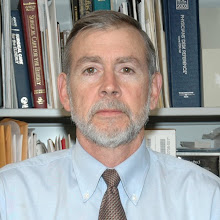Along with my wife's shift to teaching in a different location,
1I decided to change things up a bit, and that now seems fortunate. I had been teaching three days a week at Carcel Abra, the men's prison for those with longer term punishments. Attendance was declining so it seemed that I could reduce the time there to two days per week and combine two classes into one. So far, this has been a good idea because the more advanced ones can help the beginners, and if need be, I can always change again since attendance is voluntary. I also hope to shift some of the time to other activities there--a few hours in open invitation to play chess or checkers and talk. One assistant is himself an interesting case. He's an African, not Afro-Boliviano, awaiting trial on suspicion of drug trafficking.
2 His English is pretty good--as well as French and Arabic--but he speaks very little Spanish, so participating in class helps him learn some Spanish and overcome some of his cultural isolation and depression. He's requested a Spanish/English Bible, a vial of blest olive oil and a phone call to his lawyer. I'm trying to get him the English Bible and have put in a request to the Calcutta sisters (Mother Theresa's gang) for the Spanish Bible and the oil. The call to his lawyer is one more appropriately handled by a Maryknoll missioner who is also an attorney volunteering for the Archbishop's office here in Cochabamba. So, my efforts in this case are mostly that of sorting or connecting, and when it works, it feels good--even with so basic a role as chasqui,
3 delivering medications to the prison occasionally when a prisoner has a valid prescription request.
The change-ups were also valuable for refocusing my work at the hospice at Santa Vera Cruz. I visited this morning to reschedule my work and discovered that new patients have arrived. Despite their personal health issues they want to participate in a class. Also I decided to try and expand my work into yet one more site, in this case to volunteer in one of the houses in the Amanecer Foundation in Cochabamba to provide a safe, stable home environment for orphaned and abandoned children. It was in applying there recently that I discovered my application would be reviewed by Brian Vetter, a friend and former teacher/track coach of one of the Washington, DC contributors to my mission here. When Lynn and I were close to departing for Bolivia in December 2009 I was told that I might encounter Brian while we were here. I had just about decided that was not likely to happen when his name came up in conversation when I was applying to teach in one of the Amanecer houses. So, I hope to be favorably vetted by Brian Vetter and to volunteer with this lamentably far too abundant group of young people here.
__________
1She is now teaching English and Catechesis in a Franciscan high school, San Francisco and Santa Clara, in a neighborhood to the west of where we live.
2This seems to accord with a remark in the
Rough Guide to Bolivia (thanks, Tim Marcy) that there are a number of foreigners languishing in Bolivian jails related to drug trafficking charges. This person, A, told me that he made the mistake of agreeing to carry a couple of suitcases for a man in exchange for a free airplane ticket back to his homeland--Ghana, I believe--and was arrested in the Cochabamba airport when the bags were inspected. If any of that can be proven, he might be released after review, but that will take place in a minimum of 6 months. So, he has some time on his hands.
 |
| Chas Chasquito |
3A messenger for the Incas. Here's one pictured on a replica amulet Lynn bought on Isla del Sol. We really have enough of these items--we have a small collection of them hanging from nails on the mantel of a small fireplace in the house that we rent.


Hope the change up brings refreshed energies to you both.
ReplyDelete